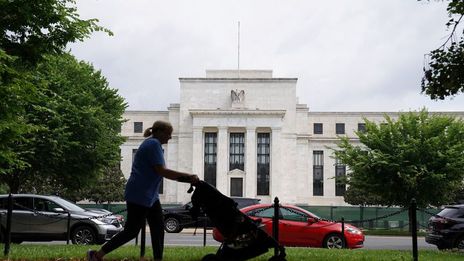(Reuters) - China's economy slowed in the second quarter, data showed on Monday, as a protracted property downturn and job insecurity weighed on domestic demand, keeping alive expectations Beijing will need to unleash more stimulus.
The world's second-largest economy grew 4.7% in April-June, official data showed, its slowest since the first quarter of 2023 and missing a 5.1% analysts' forecast in a Reuters poll. It was also down from the 5.3% expansion in the previous quarter.
KEY POINTS
* Q2 GDP +4.7% y/y (f'cast +5.1% y/y, Q1 +5.3%)
* Q2 GDP +0.7% q/q; (f'cast +1.1%, Jan-March Q1 +1.5% revised)
* 2024 GDP growth seen at 5.0%, 4.5% in 2025
* June industrial output +5.3% y/y (f'cast +5.0%, May +5.6%)
* June retail sales +2.0% y/y (f'cast +3.3%, May +3.7%)
* H1 fixed asset investment +3.9% y/y (f'cast +3.9%, Jan-May +4%)
* H1 property investment -10.1% y/y (Jan-May -10.1%)
COMMENTARY:
ALVIN TAN, HEAD OF ASIA FX STRATEGY, RBC CAPITAL MARKETS, SINGAPORE
"On net, it's a negative outcome. It does show that the second-quarter growth momentum appears to be weakening.
"The second-quarter momentum weakening kind of implies that we'll need more support to get the economy to the 5% target for the whole year. And in particular, we can see that the housing market continues to sag ... effectively, the housing market and consumption side remains weak."
LYNN SONG, CHIEF ECONOMIST FOR GREATER CHINA, ING, HONG KONG
"The two big drags on GDP growth continue to be the property sector and consumption. Property investment slumped -10.1% YoY through 1H24, and today's data showed the price decline continues. A silver lining was that more cities saw price increases, and we saw some stabilisation in some key tier 1 and 2 cities. On consumption, the 2% YoY growth in retail sales was the weakest level since exiting pandemic restrictions, and showed weak consumer confidence remaining a major headwind to the economic recovery.
"A negative wealth effect from falling property and stock prices, as well as low wage growth amid various industries' cost-cutting is dragging consumption and causing a pivot from big ticket purchases toward basic 'eat, drink and play' theme consumption.
"Overall, the disappointing GDP data shows that the road to hitting the 5% growth target remains challenging, and we will need to see further policy support in the coming months if this goal is to be reached."
BACKGROUND
* China's economy has struggled to mount a strong and sustainable post-COVID bounce, burdened by a protracted property downturn, mounting local government debts and weak private-sector spending.
* The world's second-biggest economy is expected to grow at a 5% pace in 2024 year-on-year, according to a Reuters poll. Analysts then tip slower growth of 4.5% for 2025.
* The government is aiming for an economic growth of around 5% this year, a target many analysts believe is ambitious and may require more stimulus, noting that last year's growth rate of 5.2% was likely flattered by a comparison with a COVID-hit 2022.
* China is drawing on infrastructure work - a well-used playbook - to help lift the economy as consumers are wary of spending and businesses lack confidence to expand.
* Fitch cut its outlook on China's sovereign credit rating to "negative" in April, citing risks to public finances as Beijing channels more spending towards infrastructure and high-tech manufacturing, amid a shift away from the property sector.
(Reporting by Reuters Asia bureaus; Compiled and edited by Sherry Jacob-Phillips)























